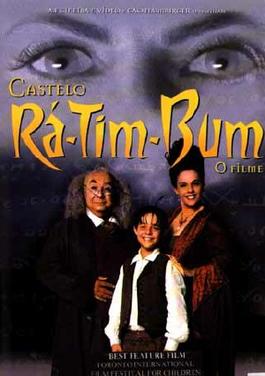This article needs additional citations for verification .(December 2024) |
| |||
|---|---|---|---|
| +... |
This is a list of Brazilian television related events from 1994.
This article needs additional citations for verification .(December 2024) |
| |||
|---|---|---|---|
| +... |
This is a list of Brazilian television related events from 1994.
| Network | Type | Launch date | Notes | Source |
|---|---|---|---|---|
| TV Fronteira | Terrestrial | 1 June | ||
| HBO Brasil | Cable and satellite | 1 July | ||
| Star Channel | Cable television | 17 September | ||
| Discovery Channel Brazil | Cable television | 25 September |
| Old network name | New network name | Type | Conversion Date | Notes | Source |
|---|---|---|---|---|---|
| Network | Type | Closure date | Notes | Source |
|---|---|---|---|---|
| | This section is empty. You can help by adding to it. (March 2015) |

TV Cultura, or simply Cultura, is a free Brazilian non-commercial public television network headquartered in São Paulo and a part of Father Anchieta Foundation, a non-profit foundation funded by the São Paulo State Government. It focuses on educational and cultural subjects but also has sports as entertainment options.

Carlos Império Hamburger, better known as Cao Hamburger, is a Brazilian film and television director, screenwriter, and producer. He is one of the creators of the Castelo Rá-Tim-Bum series of programs for children in the TV Cultura of São Paulo, along with Flávio de Souza, which gave origin to a successful movie with the same title. Castelo Rá-Tim-Bum was one of the most successful children shows to air in Brazil. He directed in 2006 another successful film, The Year My Parents Went on Vacation, partly based on his childhood memories.
Morgana may refer to:

CaiporaPortuguese pronunciation:[kajˈpɔɾɐ] is an entity of the Tupi-Guaraní mythology in Brazil. The word "Caipora" comes from Tupi and means "inhabitant of the forest".
Castelo Rá-Tim-Bum is a Brazilian children's program produced and broadcast by TV Cultura and the Network Service of Television. Targeted toward children and youth, it follows an educational entertainment model, being composed of several segments targeting specific knowledge areas, such as science and history. The program premiered on May 9, 1994, and stopped production in 1997. Partially inspired by the educational program Rá-Tim-Bum, it gave rise to a television franchise, which is part of Island Rá-Tim-Bum. Castelo Rá-Tim-Bum is a creation of the playwright Flavio de Souza and director Cao Hamburger, with scripts Jacob Dionisio (Tacus), Cláudia Dalla Verde, Anna Muylaert, among others.

Castelo Rá-Tim-Bum is a 1999 Brazilian film directed by Cao Hamburger, based on the Castelo Rá-Tim-Bum TV series.

TV Ra-Tim-Bum is a Brazilian cable and satellite TV channel. It is run by the Padre Anchieta Foundation and most of its programming is aimed at children. At first the channel's programming consisted entirely of Brazilian productions, though that has changed in recent years. Many shows are reruns of TV Cultura material, though it also produces and co-produces original content. The channel started operations in December 2004.
Cocoricó is a Brazilian children's puppet television series on TV Cultura that premiered on April 10, 1996. The character Júlio was originally derived from a Christmas special that aired in 1989 called "Banho de Aventura" on the program Rá-Tim-Bum. When Cocoricó debuted in the 90s, the program had a similar format to Glub Glub featuring short European animated series like Pingu and Fireman Sam interspersed with simple stories featuring the puppet characters, however some special episodes debuting new characters were made. The production of the show was done until 2001, when the production team started to work in Ilha Rá-Tim-Bum. With that Cocoricó had some reruns until 2003 received a soft reboot featuring new stories and without the cartoons.
Regina Rheda is a Brazilian-born writer who lives in the United States. She is known for her prose fiction concerning urban life, transnational migration, class conflicts, and animal rights. She received a national book award, Prêmio Jabuti, in 1995.
Marcelo Tristão Athayde de Souza, better known as Marcelo Tas, is a Brazilian director, writer, actor and television presenter. Host of PROVOCA and commentator for Jornal da Cultura of TV Cultura. He works as a speaker and develops series on communication and innovation for companies, in 2020 he made 103 participations in events. He is also a professor at the Domestika platform and works in corporate training. He was the main host of Torcedores.com for the coverage of the 2018 Soccer World Cup in Russia. Before: children's series "Ra-Tim-Bum" ; “Ernesto Varela, the Reporter” ; Telecurso ; and anchor for 7 years of the comedy program CQC (Band).

Ana Luiza Machado da Silva Muylaert, known professionally as Anna Muylaert, is a Brazilian film and television director, producer and screenwriter.
João Emanuel Carneiro Silva, also known by his initials JEC, is a screenwriter, film director, and author of Brazilian telenovelas. His many works include: Central Station, Midnight, Orfeu, and Castelo Rá-Tim-Bum.
Alain Fresnot is a French-born Brazilian film director, editor and producer. Born in Paris, his family came to Brazil in 1957 to live in Campinas due to the Algerian War. His family moved to São Paulo where he attended on cinema courses before his first contact with professional cinema. In 1967, he made the continuity editing for Walter Hugo Khouri's As Amorosas. He directed three short films between 1973 and 1975, making his debut as a director in 1976 with Trem Fantasma.

Anabel is a Brazilian animated television series created by Lancast Mota and produced by Sergio Martinelli. It was the first Brazilian animated series on Nickelodeon Brazil, starting with a series of animated shorts that aired during commercial breaks in 2004, until the full series debuted on February 26, 2005 on the TV show Patrulha Nick. From the following year onwards the show was moved to TV Rá-Tim-Bum, where the second season premiered on February 5, 2011. The show also aired on TVE and its successor TV Brasil.
This is a list of Brazilian television related events from 1995.
This is a list of Brazilian television related events from 1996.
This is a list of Brazilian television related events from 1997.
Rá-Tim-Bum was a Brazilian children's TV program produced by TV Cultura and Industrial Social Services. The program premiered on TV Cultura on February 5, 1990, replacing Catavento, and stopped production in 1994. As of 2015, the program is shown only on the TV channel, TV Rá-Tim-Bum.

José Rubens Chasseraux, known professionally as José Rubens Chachá is a Brazilian actor, author, and screenwriter.